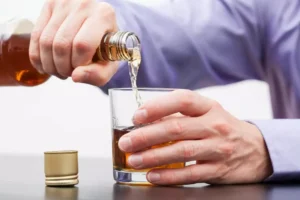
The skills and insights gained in addressing love addiction can be valuable in tackling other addictive behaviors and vice versa. The impact of love addiction extends beyond romantic relationships. It can affect friendships, as the love addict may neglect other social connections in favor of romantic pursuits. Professional life can suffer due to decreased productivity, absenteeism, or poor decision-making resulting from relationship drama or obsessive thoughts about a love interest. Codependency is another common issue that arises in the context of love addiction. Codependent relationships are marked by an excessive emotional or psychological reliance on a partner, often at the expense of one’s own needs and well-being.
Group therapy
With the right support and resources, it’s possible to break free from addictive patterns and cultivate relationships that are truly fulfilling and life-affirming. Remember, the journey to healthy love begins with loving yourself first. To understand love addiction, https://ecosoberhouse.com/ it’s crucial to differentiate between healthy love and addictive patterns. Healthy love is characterized by mutual respect, trust, and a balance between independence and togetherness. It enhances both partners’ lives and allows for personal growth.
- When I can’t stay over he starts to has too much to drink and is having a few cigarettes.
- I set up a small area where he can do it somewhat safely, but it still scares me and I would rather him not at all.
- There are several approaches to treating love addiction, and the most effective strategy often involves a combination of therapies and support systems.
Loving the Addict While Hating the Addiction
However, the longer the enabling continues, the worse the situation can become — for you and the person struggling. In some cases, you and your loved one may both struggle with codependency, but also have your own issues with substance use. You may be aware of the need for getting your own treatment for a substance use disorder.
Addiction Treatment Programs
Accepting your present situation and coming face-to-face with reality is crucial when you love someone with an addiction. Denial is an easy coping mechanism, as it can shield you from the pain substance use might be causing in your life. You might tell yourself things will get better, but it’s vital to remember that the situation will not improve simply because you wish for it.

- Take the first step toward addiction treatment by contacting us today.
- If he reaches out and I ignore him what if that pain makes him use more.
- Its such a sad and lonely feeling but again, your article has highlighted to me that I was enabling him and feeding into his addiction at great cost to myself and my own family.
- I’m one of the few people in his life not addicted to cocaine and he has pushed me away.
Overusing or inappropriately using the word “addiction” can erode the weight and meaning of a true addiction. “Love addiction” isn’t a formal diagnosis — rather, the term describes people who constantly seek out the exciting feelings of new love. However, experts think calling this an “addiction” is problematic. These fellowship groups can help you better understand your loved one’s problem with addiction.
Accessible Ways to Start Therapy

Getting the courage to leave someone with a substance use disorder is never easy, and it requires changing behaviors that you have engaged in for a long time. Before leaving someone struggling when you love an addict with addiction, you can try to get them to seek the help they need. Sometimes, stating your concerns and asking for them to get help can motivate a loved one to go to treatment.

Discussing a relapse with a supportive listener can be a valuable learning experience for someone with an addiction, Bachman says. For example, they might be able to pinpoint triggers that prompted them to engaged in substance use again. Even if you don’t express any resentment, your loved one may feel so ashamed that they assume everyone is being as hard on them as they are on themselves. That’s why it’s helpful to explicitly reaffirm that you don’t blame them for their relapse. The key thing to remember is that in order for your loved one to deal with one issue, they must deal with the other. Choose to practice the healthier ways of loving your addicted person.
Most of all, detaching communicates the message that you believe they’re strong enough, capable enough and brave enough to recover for themselves. SELF does not provide medical advice, diagnosis, or treatment. Any information published on this website or by this brand is not intended as a substitute for medical advice, and you should not take any action before consulting with a healthcare professional. If you’re feeling frustrated, Dr. Brennan suggests venting to a third party you can trust, whether that’s a friend, therapist, or people in a support group (more on that later). You could also try journaling, if that’s more your speed.
In particular, you can learn you aren’t responsible for it and that you can’t force him or her to stop. These groups also can teach you effective ways to cope as your friend or family member faces the consequences of addiction and, if all goes well, finds his or her way to recovery. Outside of professional support, aiming to rediscover your individuality can be helpful. You can try spending time alone and pursuing individual interests and former hobbies.
